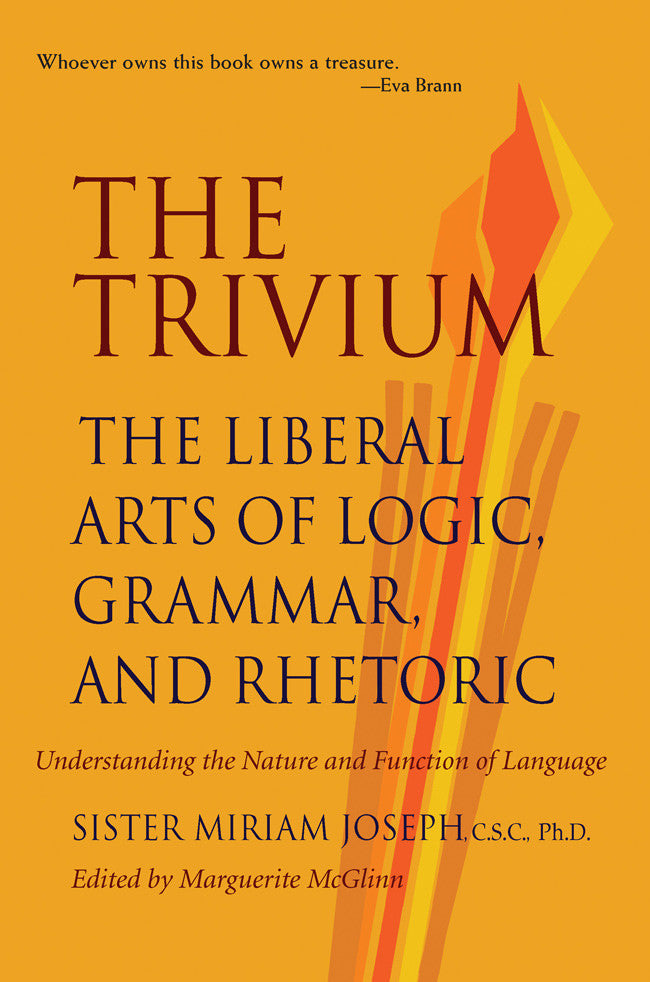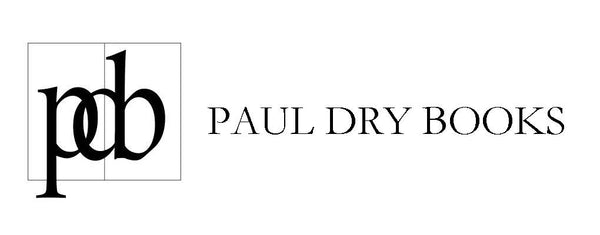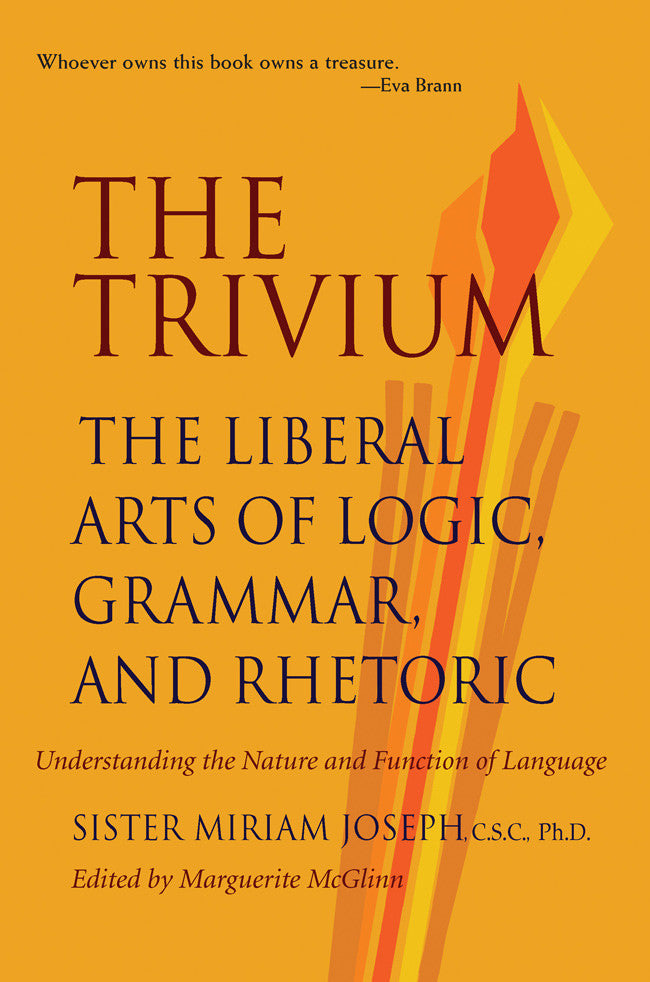The Trivium: The Liberal Arts of Logic, Grammar, and Rhetoric
The Trivium: The Liberal Arts of Logic, Grammar, and Rhetoric
Sister Miriam Joseph
Couldn't load pickup availability
Edited by Marguerite McGlinn / 292-page paperback / 6.13" x 9.25" / ISBN 978-0-9679675-0-9 / Publication Date: May 2002
Who sets language policy today? Who made whom the grammar doctor? Lacking the equivalent of l'Académie française, we English speakers must find our own way looking for guidance or vindication in source after source. McGuffey's Readers introduced nineteenth-century students to "correct" English. Strunk and White's Elements of Style and William Safire's column, "On Language," provide help on diction and syntax to contemporary writers and speakers. Sister Miriam Joseph's book, The Trivium: The Liberal Arts of Logic, Grammar, and Rhetoric, invites the reader into a deeper understanding—one that includes rules, definitions, and guidelines, but whose ultimate end is to transform the reader into a liberal artist.
A liberal artist seeks the perfection of the human faculties. The liberal artist begins with the language arts, the trivium, which is the basis of all learning because it teaches the tools for reading, writing, speaking, and listening. Thinking underlies all these activities. Many readers will recognize elements of this book: parts of speech, syntax, propositions, syllogisms, enthymemes, logical fallacies, scientific method, figures of speech, rhetorical technique, and poetics. The Trivium, however, presents these elements within a philosophy of language that connects thought, expression, and reality.
"Trivium" means the crossroads where the three branches of language meet. In the Middle Ages and the Renaissance, students studied and mastered this integrated view of language. Regrettably, modern language teaching keeps the parts without the vision of the whole. Inspired by the possibility of helping students "acquire mastery over the tools of learning" Sister Miriam Joseph and other teachers at Saint Mary's College designed and taught a course on the trivium for all first year students. The Trivium resulted from that noble endeavor.
The liberal artist travels in good company. Sister Miriam Joseph frequently cites passages from William Shakespeare, John Milton, Plato, the Bible, Homer, and other great writers. The Paul Dry Books edition of The Trivium provides new graphics and notes to make the book accessible to today's readers. Sister Miriam Joseph told her first audience that "the function of the trivium is the training of the mind for the study of matter and spirit, which constitute the sum of reality. The fruit of education is culture, which Mathew Arnold defined as 'the knowledge of ourselves and the world.'" May this noble endeavor lead many to that end.
Also available as an ebook:
- Amazon
- Apple iTunes Bookstore
- Barnes & Noble
- Google Play
- Kobo (See IndieBound's list of independent booksellers selling e-books.)
"Is the trivium, then, a sufficient education for life? Properly taught, I believe that it should be."—Dorothy L. Sayers
"The Trivium is a highly recommended and welcome contribution to any serious and dedicated writer's reference collection."—Midwest Book Review
"Lovers of language who want to articulate its necessities and possibilities for themselves, teachers who want to explain its ways to their students, students who like the comfort of decisive clarity—all these will find this book a good companion, for Sister Miriam Joseph is one of those lovingly remembered teachers who arouses our critical abilities by offering us her firm but friendly learning. Her teaching is traditional. She fits language into the liberal arts, sets out the classical elements of grammar, explains Aristotelian logic, and gives solid advice on good writing, fleshing it all out with revealing examples."—Eva Brann (Eva suggested that we publish The Trivium)
Sister Miriam Joseph Rauh, C.S.C. (1898–1982) earned her doctorate from Columbia University. A member of the Sisters of the Holy Cross, Sister Miriam was professor of English at Saint Mary's College from 1931 to 1960. She was also the author of Shakespeare's Use of the Arts of Language and many articles on Shakespeare and on the trivium.
Marguerite McGlinn is an editor and writer whose essays and short stories have appeared in English Journal, the New York Times, the Sun-Sentinel, the Philadelphia Inquirer, and the Los Angeles Times. She is a former English teacher.


